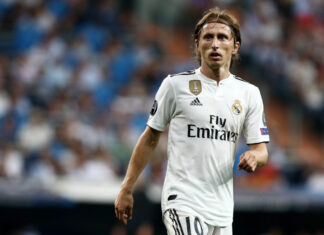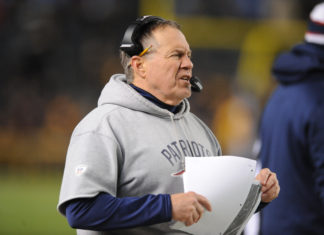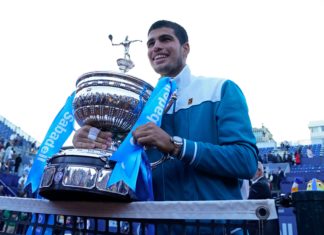It is fair to say that under normal circumstances a man who rose to the pinnacle of his sport, won the most famous event in that sport seven times consecutively, and did so whilst beating cancer, would normally be held up as an absolute role model for others in life.
Lance Armstrong’s story, however, was not that simple.

Flickr
The Early Years
Armstrong started his career as a triathlete. It wasn’t until he turned 21 in 1992 that he moved into professional cycling. He had some minor success up until 1996 when he was diagnosed with a potentially fatal form of testicular cancer.
He took two years off from the sport while he fought and beat his cancer. He also founded the “Lance Armstrong Foundation” to assist other cancer survivors.
Hitting His Stride

Flickr
On his return to cycling, Lance joined the US Postal/Discovery team and met with astonishing success. He won seven back-to-back Tour de France titles between 1998 and 2005. He picked up a bronze medal in the Olympics. Then he retired from the sport for a second time at the end of 2005.
So far, so good but controversy was waiting around the corner.
Doping Allegations

Wikipedia
“The Sunday Times has confirmed to Mr. Armstrong that it never intended to accuse him of being guilty of taking any performance-enhancing drugs and sincerely apologized for any such impression.”
The allegations of Lance Armstrong using performance enhancing drugs were rampant during his career, but as The Sunday Times found in 2004, you can’t print rumor as fact.
From 1999 onward, Armstrong shrugged off allegations of doping at every turn and then in 2012, the United States Anti-Doping Agency found him guilty of using performance-enhancing drugs after all.
Armstrong would go on to admit that the allegations held some truth and refused to fight any of them in the public eye. This cost him $75 million in a single day when all of his sponsors dropped him simultaneously.
Does It Matter That Much?

Flickr
Jeremy Dorn told Bleacher Report that while Armstrong’s doping is indeed wrong, there were other more important matters to consider such as the work Armstrong’s charity had done, arguing: “no matter what you think about him, can we all agree that $500 million donated to charity for cancer research is inherently a good thing?”
Bob Denton, a cancer survivor agrees: “Really, compared to the life and death issues of cancer that Lance has embraced, cheating in the Tour is small potatoes.”
Caden Brody, also a cancer survivor, does not, saying: “We cannot deny he raised a lot of awareness and money for cancer. As a survivor, I commend that. Unfortunately, he undid everything, in many ways, by his sociopathic need to bully, win, play mind games, and he used cancer as a cloak to cover his sins. If he’d confessed ages ago in true remorse? We’re a pretty forgiving people. But this is a forced, ‘I still want to compete in something so I better apologize’ thing.”
Human Failings, Superhuman Achievements

Flickr
It’s probably fair to say that “Lance Armstrong the drug cheat” is hard to draw inspiration from. It is also fair to say that the man who beat cancer, won seven Tour De France titles and raised ha;f a billion dollars for good causes is more than just a drug cheat.
It is ultimately for the individual to decide whether to admire him or not. We are all human and we have all succumbed to temptation at some point in our lives; might it be best to remember Armstrong for the good he did rather than his human failings?









